- Home
- Al Sarrantonio
Five World Saga 01 Hornets and Others Page 2
Five World Saga 01 Hornets and Others Read online
Page 2
"The Sirens?" he asked. "To see Snooky again."
Jimmy nodded dourly, and Bill smiled.
A hard left onto Harbor Road, and there was the water to meet them. Their legs carried them on, but suddenly Bill stopped short, staring out at the Bay.
"What is it?" Paul asked.
"Nothing," Bill answered, staring into space. Again he seemed lost, searching for something. He shook his head. "It's just that I haven't seen that water in a long time, but it seems like I never left it."
The Seven Sirens looked barricaded against winter's advent. The green and white striped awning was rolled flat against the front, and the take-out window, open wide in the summer to serve clams and shrimp to the tourists who didn't know about the back room or were too shy or polite to barge in on the regulars, was pressed down tight and caulked. The porthole in the door was steamed; there was an untidy pile of late-season discards—paper cups and napkins—that swirled like a miniature leaf storm on the boardwalk out front.
Jimmy was pushing open the door when Bill held back. He was looking out over the water again.
"Okay if we stay outside?"
Paul looked at the two round picnic benches yet to be stored; the seats were up on the tables and the beach umbrellas—again, green and white striped—were missing from their holes. "Little cold to sit out, Bill." Then he added, "Sure."
He disappeared inside, returning with a tray of shrimp and paper cups of beer. "This stuff's on Snooky," he said. The other two had set up one of the tables, and Bill was once again smiling, holding the open bottle of liquor under Jimmy's nose.
"Come on, puritan. Just a sip." He turned to Paul, beaming. "Goofball still won't drink, will he?"
"Been trying to break him down for years."
Bill took one of the beers and drained half of it in a gulp. His back was to the Bay. The open bottle was in front of him, nearly empty. He was quiet for a few moments and then said, "I don't know why I came back."
"That's not what your letter said," Paul offered.
Bill shrugged. "All that stuff about being with your pals, the guys you grew up with, the places you know..." He shrugged again, then grinned. "I was drunk when I wrote that."
"That wasn't hard to figure out," Paul said.
"You misspelled pals four times," Jimmy said, straight-faced. "Spelled it with an I."
"That's what you guys are," Bill said, and suddenly he stood up, looking down at them. "My pils." He sat down again. "Hey Paul, you still teaching at the old school?"
Paul nodded.
"Why did you come back?" Jimmy said, and now there wasn't a hint of anything but seriousness on his face.
Bill was staring down at his hands, working his fingers over the knuckles. For a moment they thought he wasn't going to say anything. He reached for the bottle, then let his hand fall back on the other one again. "I truly don't know."
He looked up at them, and now there was a kind of pleading in his eyes. There was something he wanted them to tell him, some word or phrase to make him say what he wanted to say. Suddenly he blurted out, "Do you know what a shit I feel like coming back here? Do you? I was the big mouth, the one who always said that this wasn't the place to be, that there was a big world out there, that I was..." His hands were fists and he knocked them one against the other. ...That I was going to grab the world by the balls." He laughed. "That's what I said: grab the world by the balls. You know what I did?" He laughed again, a snort. "I grabbed myself by the balls."
"Hey, Bill." Paul began.
"No, let me. You knew this would happen. The two of you knew that if I really did come back I'd go on like this."
"We knew you'd come back," Jimmy said quietly.
"That's a really flicked-up thing to say."
Abruptly the hands unclenched, resting on the picnic table. There was a small plate of shrimp in front of him untouched, and as if his hands now saw what his eyes didn't register, his hands moved the plate away from him.
He went on, his voice lowered. "Do you know that two weeks ago, when my hitch was up, I had every intention of signing back up? I'd never even thought of doing otherwise. They were paying for computer school. I was up for a promotion in rank in a few months—shit, I was even getting along with the hard-ass sergeant I wrote you about. Things were going great with Julie too."
"You wrote about her," Paul said. "Said she was okay."
Anger crept into Bill's voice. "Did I write that I wanted to marry her? That was up the line too. And then—" He made as if he were holding a pen, poised above the table, frozen. "And then I had that paper in front of me, and suddenly I didn't want to sign it anymore, I wanted to come back to Greystone Bay. More than anything else in the world, I wanted to come back here."
"You remember your early letters? They were full of homesickness," Paul said.
"Come on, that was three years ago! I told you later on I washed this place out of me. What the hell is there for me here except you guys? After my old man died and the bank took the house—shit, there's nothing here at all." Once again anger came. "Do you know what my long-range plans were? Another hitch, then boom, out of the army with all that computer training behind me. I was going to go to Boston, get a job with one of those big computer places on Route 128, be set for life. And with Julie. And then suddenly, none of it means anything anymore. I had a fight with her just before I got on the bus, and ended up telling her to go to hell. We'd never even had a serious argument before."
"You can never go home again," Jimmy quoted laconically.
"Thomas Wolfe my ass. I'm here, aren't I?"
The anger had drained out of him, leaking away to the water behind him, and now he saw the bourbon bottle in front of him and he finished it with one swallow. Another sip of beer and suddenly he smiled, washing everything else from his face. "So I'm here, I came home, and, well, I guess it's all right." The smile trailed a bit and his eyes wandered. "I guess it's all right..."
It was getting dark. Out in the harbor, where bay met and kissed ocean, a lonely foghorn sounded once, then again. Nearer, a buoy slapped itself, the mild lash of a rope on hollow metal. The air thickened, became moist, and already the few fall stars twinkled desperately, trying to shine through the heavy night coming.
They rose, and moved on. As Bill pushed his chair back he saw Snooky regarding him inscrutably through the small front window; the old bar owner nodded once in salute, and Bill waved back. There was more drink in him than he thought. He stood and found the world turning for him momentarily; then it steadied and Paul and Jimmy were there beside him. There was a heaviness in the pocket of his coat and he felt down to find the smooth glass of an unopened pint of bourbon. He left it there, tightening the collar of his coat around his neck.
They turned south, passing Port Boulevard once again, where the bright lights of the shops and stores were beginning to turn to the dimmer ones of closing time. Bill felt oddly warm and peaceful. He remembered a time when he had stolen a newspaper from one of the stands next to Woolworth's, because his old man liked the Tribune so much and wasn't buying it because the factory had had a layoff and they were keeping every nickel until they found out how permanent it would be. He'd walked two blocks, fast, with the paper tucked so tight under his arm it hurt, and then when he finally slowed down he looked down to see that he had taken The New York Times by mistake. He'd sneaked the paper back to the newsstand, not so much out of guilt as that if he had brought the Times home his old man would know he'd stolen it and whip him till his pants bled.
They passed the Boulevard, leaving the lights behind. Again the buoy slapped itself, and suddenly Bill crossed the boardwalk, facing the Bay; he put his arms on the railing and looked down the steep embankment before turning to his two friends. They saw he had a newly opened bottle of bourbon in his hand.
"Had enough?" Jimmy asked.
Bill answered, "Never, I want to toast you two guys now." He held the bottle out straight over the railing. His head swam but his arm was steady as the
rocks below. "To the two biggest bastards I know."
He offered Paul the bottle, and, after Paul swallowed, he was astonished to see Jimmy take it also, a discreet sip passing into his mouth. "Mother of God," Bill said, his eyes growing wide, clutching at his chest. "The world is surely ending when Jimmy Hoffman takes a drink." Jimmy shrugged sourly and handed the bottle back.
"Do you know," Bill said, pausing to lighten the bottle himself, "what I thought of the other day? I thought of the time the three of us went looking for that old man in the chair. Remember? There was that story we heard, I can't remember any of it, but there was something about an old man who sat in a chair all the time."
He looked at his friends; Paul was staring out at the water, Jimmy moving a hand along the railing, lips puckered, the taste of alcohol still in his mouth.
"Come on," Bill continued, "don't you remember? It was one of the biggest things we ever did. We found the guy in the chair. We must have been in third, no, fourth grade. Mrs. Johnson was our teacher. She still at the school, Paul? You ever see her?"
"She's Vice Principal," Paul said flatly.
"You see? I remember it was fourth grade because we had Mrs. Johnson for our teacher and because that was the year we all fooled Benny Lakeland into asking his old man for a box of rubbers for Christmas. You remember that? The poor dumb bastard didn't know what a box of rubbers was."
Jimmy was smiling, and suddenly Paul broke into a laugh. "I remember that."
"Don't you remember the other thing? The guy in the chair?"
"Do you?" Jimmy asked, oddly.
"Sure I do!" He stopped, racking his memory. "Somebody told us all about this guy who did nothing but sit in a chair in a little room somewhere in Greystone Bay, and the three of us went looking for him, and we found him."
"And?"
"And nothing! That's all there is. What's the big deal? The point was, we found the guy and nobody else did." He pulled the bottle up to his mouth and kept it there a long time. "Jeez, you guys are bastards all right."
"I remember," Paul said, almost in a whisper.
"There, you see!" Bill's eyes brightened.
Paul took the bottle from him and they all looked out over the Bay. There wasn't much to see now, but they had never needed eyes here anyway. The ears and the nose did all the work, with the salt in the air and the good dampness that was always there, especially in the summer, and the squawk of gulls and the tiny splash they made when they dived to snare a shiner from just below the surface of the water. The foghorn wept again, out somewhere in the loneliness, and now, close by, they heard that tiny splashing sound and then the triumphant sound as a gull reared blackly up away from them, its prize in its mouth.
"This is a beautiful place," Bill said quietly.
The others nodded, and then Paul used the bottle before Bill took it back.
The night closed in on them, and they walked on. South, still, along the boardwalk that creaked in places like the steps in a haunted house. "You remember the time we went to that haunted house near South Hill?" Bill began, but then he said, "Forget it." He was awash in alcohol, and the red and white neon lights stabbed at his eyes painfully, making him shield them. Everything was too bright, surrounded by too much darkness. He heard Paul and Jimmy walking beside him, but had to reach out his hands to clutch their coats to make sure they were really there. He wanted to throw up, but instead, took the bottle to his mouth again, as a baby might take a nipple.
"Where are we?" he said, not sure if the words had made it to his lips, but he nodded when Jimmy answered, "Harbor Road still, down near the end."
"Ah," he said, once more wanting to throw up and then suddenly, from far away, he heard a vomiting sound but was surprised to find that it wasn't himself but Jimmy who was bent double.
"Never could hold your liquor," Bill said, slurring out a laugh. "One drink in his whole friggin' life and he barfs up. Here, have another." He held the bottle under Jimmy's nose but Jimmy pushed it gently away, rising up slowly.
"Where are we now?" Bill asked, and then he stared at the front of the building they stood before.
"This is it. Goddammit, this is it!" There was drunken victory in his voice. He turned to his two companions, who only stared at the front glass window, a small square cutout with a neon-scripted Bud sign that was not lit.
"This is where the guy in the chair was!"
Suddenly he heaved over, throwing the acidy contents of his stomach onto the small stoop in front of the bar. He stood, cleaning his mouth with his sleeve, and then found that the hand within the sleeve still held a bottle with a half-inch of bourbon in it. His stomach protested loudly, but he took it down anyway, closing his eyes momentarily before focusing them again on the building before him. He dropped the empty bottle and it spun once on the sidewalk before settling, label down, next to the stoop.
The liquor, all-encompassing as it was, had now deposited him in a place that was crystal-clear. He saw the door, the brass handle on the door-
"We're going in."
His leg lifted, and he was up on the stoop. Without looking, he knew that Paul and Jimmy were with him. He could feel their bodies beside him, their wordless rapport.
"You don't remember anything?" Paul asked; his voice was low and Bill couldn't locate Paul's face to go with the voice.
"Dammit, this is the place!" he said in answer.
His hand was on the door—old, notched wood, a lock that had been replaced more than once; he pressed his hand, his body, against it.
The door opened inward easily. A push of tobacco smoke, thick as dust, greeted him, along with the stronger smells of any old bar: urinals long uncleaned, their towel machines empty, soap dish empty, a run of gurgling water in the brown-bleached sink, and a protesting squeal followed by nothing when the hot tap is turned; and beer, sour, run into every corner, dried but never gone, spills on the floor, green tiles rubbed nearly black with cigarette filters and the detritus from a thousand heavy shoes. There was a jukebox flat against one wall, in the shadows, its lights out save one faint amber bulb that pulsed like a retreating heartbeat. Pegs set into the warping paneled walls, dark as the floor, stained, another leak of water running silently from one ceiling corner to meet an ancient pool on the ground that never grew and never receded. The bar was not long but filled, smudged wood polished by coatsleeves, tarnished footstools with torn red leatherette seats. A bowling machine off in another corner showed no lights at all, a rug of dust covering its alley, the plug draped across the top.
The seats were filled with old men who turned as they entered; it was as if a nest of old birds had been disturbed, swiveling their hooded eyes to see what sort of animal approached. The bartender looked like one of them, perhaps elected to lift his aging body from his barstool, worn topcoat and all, and serve his fellow passengers. There was a glass in his hand, clouded, and he paused only a moment as they entered before turning his back on them to refill it from a bottle under the smoky mirror in back of the bar. His eyes turned up to the mirror, watching them there.
Someone at the bar snorted; swallowed phlegm.
"North Hill boys," someone grunted in dismissal, and the old men turned back to the bar, but all the eyes in the mirror, between the whiskey bottles, stayed on them.
"Dammit, this is it," Bill said too loudly. The world pendulumed up away from him, came to a standstill, pendulumed back the other way. He wanted to sit down. Once again his eyes hurt, and the world was divided into glowing blobs of light and surrounding darkness.
"We sneaked in and went right over there," he got out, pointing crookedly to an indistinct dark corner next to the jukebox.
"Follow me," he said, stumbling toward the dark corner.
His feet would not work properly, but suddenly he was there, falling onto the jukebox, his face bumping flush with the scratched dusty glass. "NIGHT AND DAY" —A-4, he saw, and then, mercifully, there were hands under his arms and he was pulled away. He expected to be taken to where damp sea air wou
ld greet him, but instead, there was a shuffling and his feet were on steps leading upward. He had never been so drunk. His boots scraped leadenly but then he remembered how to use them and he lifted one, then the other. He felt like a marionette, his feet flailing out and up in an approximation of climbing and yet smoothly supported by the arms that held him.
"Up?" he said, slurring his word horribly so that it sounded like the cry of a baby. He tried hopelessly to right his head and bring his eyes to focus, and then abruptly he could see for a moment. There was a steep up-sloping bank of steps ending in a wall. The wall got closer and then turned, and he looked up to see another series of steps ending at a huge—
"Paul? Jimmy?" A trapdoor dropped open in his mind, and he remembered it. He remembered where he had been. He heard giggling and he turned to see Paul beside him, his nine-year-old face stifling a laugh; Jimmy was on the other side and now Paul reached out, poking a finger into Jimmy's ribs and Jimmy threw his hands over his mouth, his eyes wide, trying not to cry out, and then turning to tell Paul in a severe whisper to shut up. They heard a creaking sound from below and the three of them stopped dead, leaning back against the wall and peering down into the shadows.
"You think someone saw us?" Paul whispered.
"Nah," Bill said, "not those old men. They're lost in their beer." Jimmy nodded, and they waited, still as mice, for another sound from below that didn't come.
"You really believe that crud about 'the man in the chair'?" Paul snorted in a low voice.
"You were there, you heard," Bill shot back, glancing up at what lay before them. "And pipe down."
"I think you put your big foot in your mouth," Paul persisted. He too was looking at the top of the stairway, but his tone remained derisive. "A bunch of bull— 'one man, and one only, from all the men in Greystone Bay, must always sit alone.'" He waggled his hands before him, his voice mocking in a whisper the spooky sing-song of a taleteller around a campfire. "So was the pact made, and so it continues—the safety of Greystone Bay for the life of one only." He opened his mouth and eyes wide, feigning fright, then broke into stifled giggles.

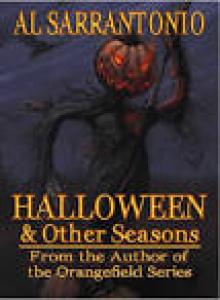 Five World Saga 01 Hornets and Others
Five World Saga 01 Hornets and Others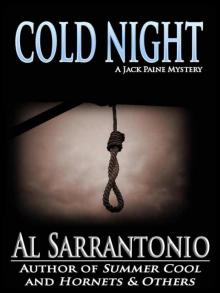 Cold Night (Jack Paine Mysteries)
Cold Night (Jack Paine Mysteries)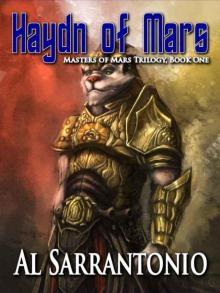 Haydn of Mars
Haydn of Mars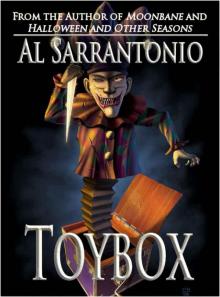 Toybox
Toybox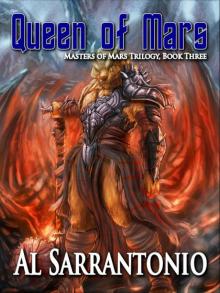 Queen of Mars - Book III in the Masters of Mars Trilogy
Queen of Mars - Book III in the Masters of Mars Trilogy Exile
Exile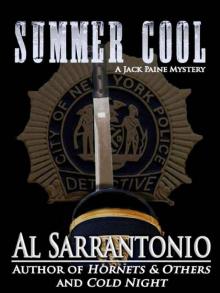 Summer Cool - A Jack Paine Mystery (Jack Paine Mysteries)
Summer Cool - A Jack Paine Mystery (Jack Paine Mysteries)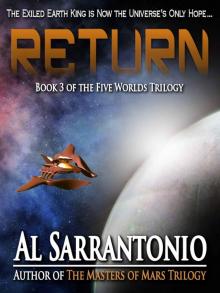 Return - Book III of the Five Worlds Trilogy
Return - Book III of the Five Worlds Trilogy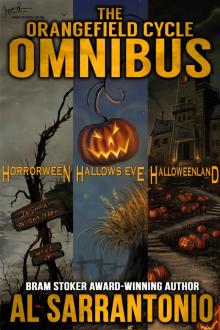 The Orangefield Cycle Omnibus
The Orangefield Cycle Omnibus Summer Cool jp-2
Summer Cool jp-2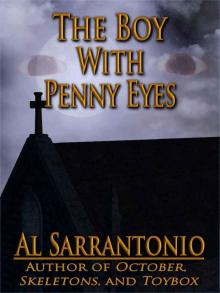 The Boy With Penny Eyes
The Boy With Penny Eyes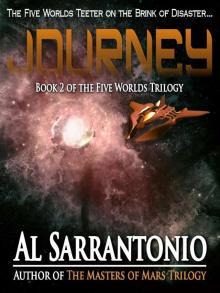 Journey - Book II of the Five Worlds Trilogy
Journey - Book II of the Five Worlds Trilogy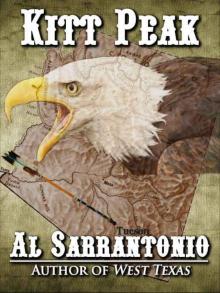 Kitt Peak
Kitt Peak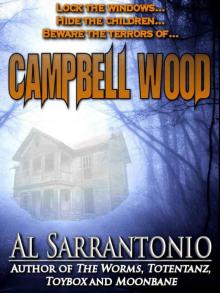 Campbell Wood
Campbell Wood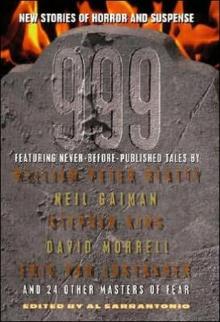 999
999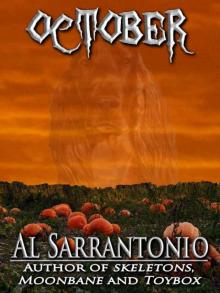 October
October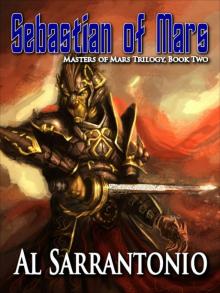 Sebastian of Mars
Sebastian of Mars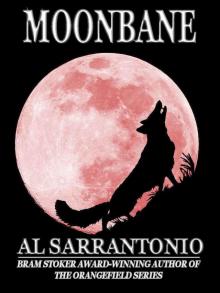 Moonbane
Moonbane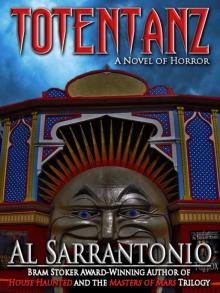 Totentanz
Totentanz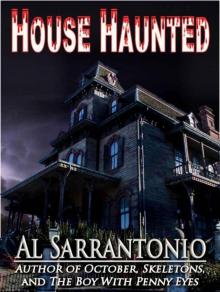 House Haunted
House Haunted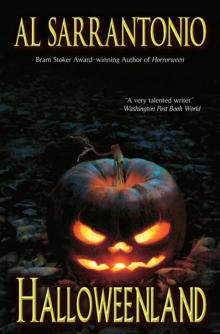 Halloweenland
Halloweenland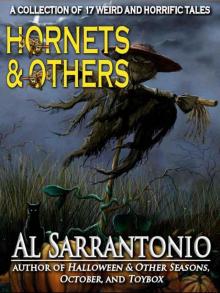 Hornets and Others
Hornets and Others